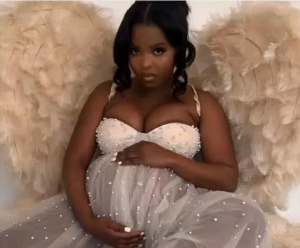By the time Bishop Desmond Tutu’s plane took-off for home after almost week-long visit to Cameroon, he must have realised that the political crisis in Cameroon was more complex than he had thought and so the best he could do was to leave a prayer on the lips of Cameroonians that the situation should not degenerate into the Liberian experience.
Liberia at the time was engulfed in a civil war. That was about all the Arch Bishop could do.
The truth is that after shuttling between Yaounde and Bamenda, the Bishop failed to realise that both Biya and Fru Ndi might have been willing to talk, but such willingness was constantly being weakened by the bargaining positions of the two men.
While in Bamenda, the regime’s men were only too eager to show Bishop Tutu houses and property destroyed, all in a bid to discredit Fru Ndi as a terrorist. No one had the sincerity to hint that the violence was sparked first in Sangmalima, Ebolowa and other towns in Mr. Biya’s region of origin.
While with Mr. Biya, the Bishop must have been told how he won the election and Fru Ndi was simply being unpatriotic and striving only to split the country and throw it in to chaos. No one in the Biya camp could muster the courage to tell the Bishop that the elections were rigged for many reasons one of which was that it will hurt France too much to see an Anglophone at the helm of affairs in Cameroon.
Other reasons are well known to Cameroonians. In Bamenda Fru Ndi must have told the Bishop without reservations that he has become a prisoner in his house only because he happened to have been the peoples’ choice during the elections and because he happened to be an Anglophone.
The Bishop must have been perplexed with these two stances in a dispute. As priest and man of God, he could do no more than beseech God the Almighty to save the country from impending calamity. But as a man who is so used to such polemics, he must have realised before his departure, who was telling the truth.
There is no doubt that after the alleged massive rigging of the Presidential election under the watchful eyes of the National Democratic Institute, whose reputation is not contestable, Mr. Biya only seemed to have realised that staying in an elective post in a democracy requires more that the sinister endorsement of legality by a supreme court that openly proclaimed its own inability to deliver justice on the merits of the issues before it.
It is obvious that the National Democratic Institute could not fold its hands and watch its reputation dragged into mud simply because a certain Mr. Biya happened to head a regime that is dying to stay in power against the wishes of the Cameroonian people. It could not fold its arms and watch the rights of the people trampled upon in the name of an advanced democracy.
The irony of Mr. Biya’s victory at the time was that it needed a legitimate leadership to guarantee an atmosphere conducive for investment.
The introduction of the Bishop Tutu factor in the country’s stalemate at the time was to give the impression that Mr. Biya was interested in negotiation that will ultimately lead to the formation of a government of national unity.
Considering the position of the two men as they presented themselves to the electorate the issue of a government of national unity would seem impracticable.
Fru Ndi and the Alliance for the Reconstruction of Cameroon through a Sovereign National Conference ARC-SNC were committed to a total restructuring of the institutions of state including drafting of the constitution.
Mr. Biya and the CPDM could not see any rationale in a national conference, nor the need to set up any machinery for the restructuring of the society. Most observers argued that any attempt to set up a government of national unity must first of all address the issue of the suspension of the constitution, and the dissolution of the national assembly.
It is on this premises that a transitional government could be formed with much powers devolving from the President to the Prime Minister who will be the veritable head of government.
So Bishop Tutu went back home only with the prayer for Cameroonians to confide their problem to God the Almighty. That was all he could do as a man of God.
Opinions of Thursday, 25 February 2016
Auteur: By Adolf Mongo Dipoko














